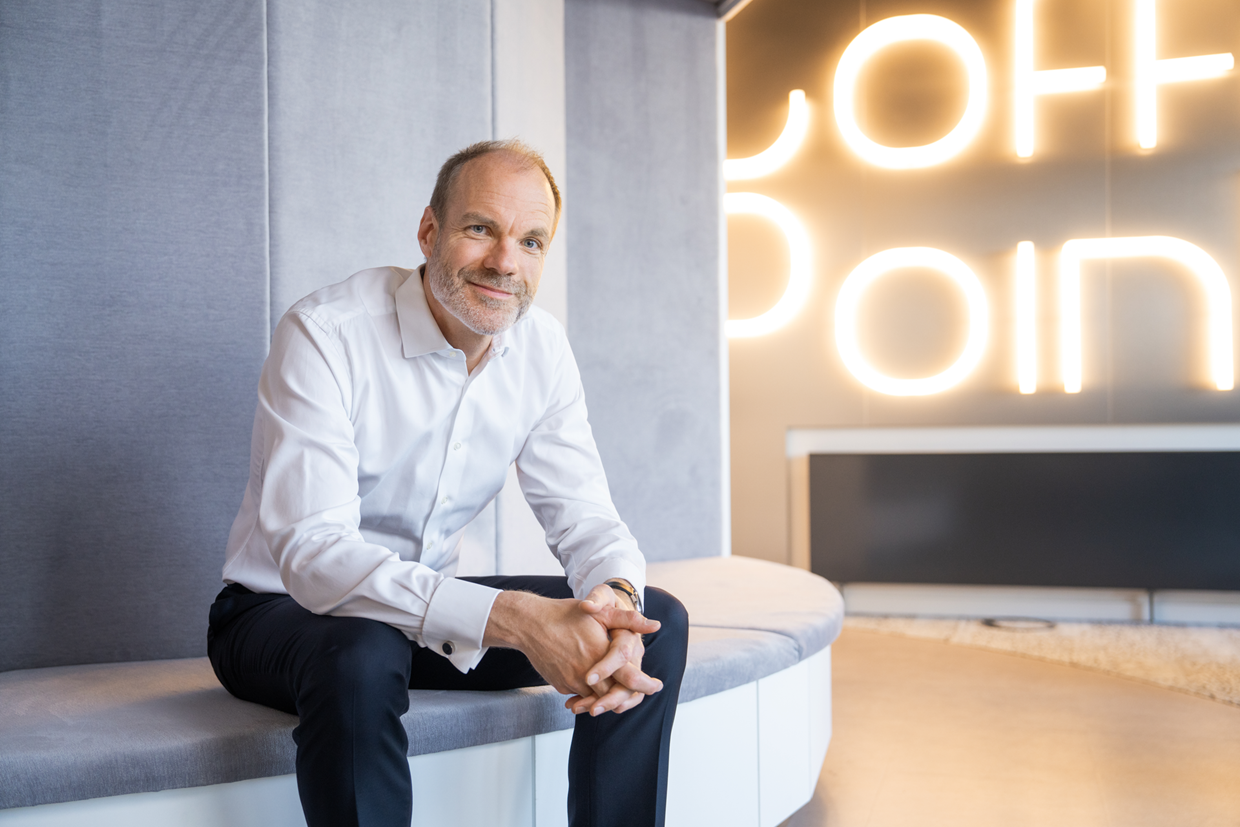Corporate governance
Foreword by the CEO

Lars Wagner
CEO AND
CHIEF SUSTAINABILITY OFFICER
OF MTU AERO ENGINES AG
Boarding for the future
Dear readers,
At MTU, accepting challenges and finding new approaches is one of our strengths. Standing still means going backwards; for us, innovation is the norm. Demand for air travel is back, passenger numbers are returning to pre-pandemic levels, and forecasts predict strong growth in air travel over the next few decades. As an engine manufacturer, we face a particularly tough challenge: air traffic is growing, but emissions must fall.
We want to shape the future of aviation and enable climate-neutral flying—and we’ve set out how we’ll do it in our ambitious Claire (Clean Air Engine) technology roadmap. The EU Green Deal, which aims to achieve climate neutrality by 2050, is key to our objectives. This ambition is, in turn, derived from the Paris 1.5 degree target. As a result, the innovations we’re working on are more comprehensive and far-reaching than many might imagine.
Today, every aircraft is fueled by kerosene. Tomorrow, there will no longer be just this one option, as the propulsion technology used will depend on the application. That’s why we’re working on various approaches within Claire—ranging from evolutionary developments to revolutionary concepts. One of these is the fuel cell, which could deliver fully electric flight with virtually zero emissions. Initially, this technology will carry smaller aircraft into the skies; starting in 2050, it will power short- and medium-haul aircraft as well. As a key building block for this, we acquired the electric motor specialist eMoSys in 2023.
For aircraft with 150 to 200 seats, meanwhile, we’re pursuing an evolutionary development of current engine types, in particular the geared turbofan (GTF). The GTF Advantage, soon to be available on the market, is a technologically improved variant with reduced CO2 emissions. A second GTF generation is to follow later. Work on this is already in progress. At the same time, we’re driving forward revolutionary gas turbine concepts. We introduced an idea known as the Water-Enhanced Turbofan (WET concept) into the SWITCH project as part of the EU’s Clean Aviation research program.
For widebody aircraft with more than 250 seats, one viable solution may be to power gas turbines with sustainable aviation fuels (SAFs) or hydrogen. The great advantage of such alternative fuels is that they can be used drop-in, meaning without any changes to the infrastructure at the airport or to the engine. SAFs immediately make aviation more climate neutral. In the long term, they are a must for long-haul flights.
Another important cornerstone of our climate commitment, and another way we are helping attain the Paris Agreement target, is our ecoRoadmap: an operational climate strategy that will allow us to achieve a 60 percent reduction in the carbon footprint of our sites by 2030. In the long term, we’re aiming to make both production and maintenance climate neutral. In 2023, we reached a special milestone on the road to that goal when we started deep drilling for our geothermal project at our headquarters in Munich. This project sees us venturing into unknown depths for an aviation company—and we’re making a success of it. As I said, challenges are what drive us, especially when they hold out such promise. Starting in mid-2025, we want to meet around 80 percent of our heating requirements at the site with CO2-free energy from beneath the ground.
The only way we can make progress on all these fronts is with a strong, committed team. Recent times have been characterized by many uncertainties and crises, but MTU has proven its strength. We’re proud of how our employees do everything they can to implement our sustainability strategy across all areas; working day in, day out to drive forward the transformation of aviation together. To make sure we achieve this, we actively live by a culture of tolerance, diversity, and respect—together and every day. We’re convinced that equality of opportunity and inclusion are essential for our high level of innovation and our long-term success. It’s only with a wide range of ideas, perspectives, and experience that we can rise to the many challenges we face.
A further key concern for us is the protection of human rights along our value chain. We fulfill our duty of care as an employer of more than 12,000 employees worldwide and as a customer in global supply chains. We firmly believe that economic growth and social responsibility must go hand in hand. We have strengthened the principles of responsible corporate governance with a Policy Statement on the Protection of Human Rights and by enhancing our risk process for our human rights due diligence.
At MTU, sustainability is a matter for the Executive Board. All members of the Executive Board are committed to making decisions, directing investments, and implementing measures in all areas of sustainability. To underpin our continuous progress, we have made climate action and social sustainability targets relevant to compensation for the Executive Board and for managers. In addition, we created a central Corporate Sustainability Management & Reporting unit effective May 1, 2024. This enables us to meet the growing demands for transparency and control. As Chief Sustainability Officer, I look forward to working with this team and the entire community within MTU.
Together, we will keep our goals firmly in sight and tackle challenges with the motivation to find effective solutions, even in the knowledge that these will certainly not always be straightforward. It will take courage, determination, confidence, and cohesion.
And you will find all of this in this sustainability report. Join us on our journey toward climate-neutral flying. Let’s work together to shape a future worth living for generations to come!
I hope you enjoy reading the report.

Lars Wagner
CEO and Chief Sustainability Officer of MTU Aero Engines AG